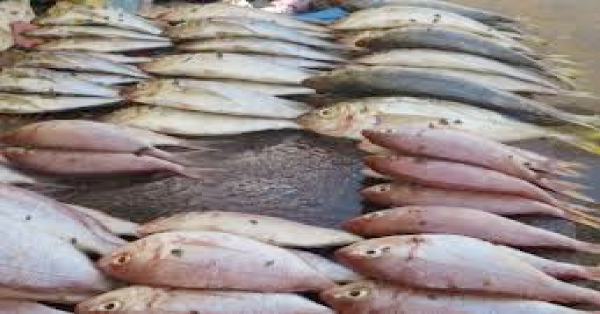
This has therefore impacted the livelihood of vulnerable women who struggle for their daily earnings and survival.
Experts have indicated that an increasing number of Gambian businesses remain uncertain about the future and fear that the economic impact will lead to revenue and job losses thanks to covid-19.
Speaking to The Point Mama Sanneh, resident of Latrikunda Sabiji and a fish vendor at Latrikunda Market, explained that the coronavirus has caused them several difficulties since it was recorded in the country. According to her, the pandemic collapsed their businesses, saying they had been working fine before covid-19.
“There is a big gap in our daily earnings. Since the pronouncement of the first case of coronavirus, our commodities and other stuff become no longer marketable. This is as a result of few customers and government restrictions on movement of people and closure of non-essential businesses. The basic commodities have risen rapidly, be it fish, onion or any other food item,” Sanneh added.
Mrs. Sanneh continued that the prices spike daily due to lack of control, while adding that they buy fishes at high prices and as a result of that, they couldn’t sell them as usual.
“Before the pandemic, a cup of rice was costing six dalasis, but as we speak, it’s costing 10 dalasis and even 15 dalasis for some varieties,” she complained.
“The hike in the price of fish is the worst. We work every day but still find it difficult to survive due to poverty we and our families are trapped in.”
She called on the government to assist the women, especially the petty traders, saying they are faced with so many obstacles in providing their daily meals and urgently need government’s intervention.
“When the government announced the lockdown and forced us to close by 2 p.m., it was the worst moment because we were not able to earn much,” she pointed out.
Awa Dampha, a native of Tallinding and a fish vendor at Latrikunda Market, also shared her precarious situation as a result covid-19.
According to her, the pandemic has closed the door of opportunities to women and petty traders in particular.
“I never saw this kind of sickness in my life. I’m a fish seller, but I can tell you things are not going well with me in this market. I can’t do anything but to remain faithful.”
The fishermen always complain about government’s restrictions and as a result of that, there are no enough fishes. Whenever the fishes are less in the market, the price increases,” she pointed out.
She further complained that the lockdown was the worst moment of the lives of petty traders. Mrs. Dampha indicated that they sometimes take fishes on credit basis from the fishermen and default in payment due to lack of customers.
“The government’s support shouldn’t be bias. It should be neutral and give priority to the most vulnerable. I call on the government to help us with cash, so that it can benefit us in our petty businesses.”
In an interview with Alieu Secka, the chief executive officer of The Gambia Chamber of Commerce and Industry (GCCI), said research confirms that Covid-19 have been devastating to The Gambia’s economic operators, especially the micros and small businesses which women form the majority.
He added that the Central Bank’s quarterly Business Sentiment Survey showed a significant shift in business sentiment due to the impact of Covid-19.
According to the United Nations Development Project (UNDP) Covid-19 report, a large number of the Gambian population is still vulnerable to shocks and a crisis like Covid-19 will move most of the vulnerable populations back into poverty while increasing vulnerability for others.
“In such situations, women and children tend to be more adversely affected mostly because of the gendered nature of the informal sectors. The Gambia is also facing an employment crisis with an unemployment rate of 35.2% Female and youth unemployment are even higher at 57.1 and 41.5% respectively,” the report indicated.
The research recommended for The Government to take into account the people when instituting policy measures to combat the spread of COVID-19.





